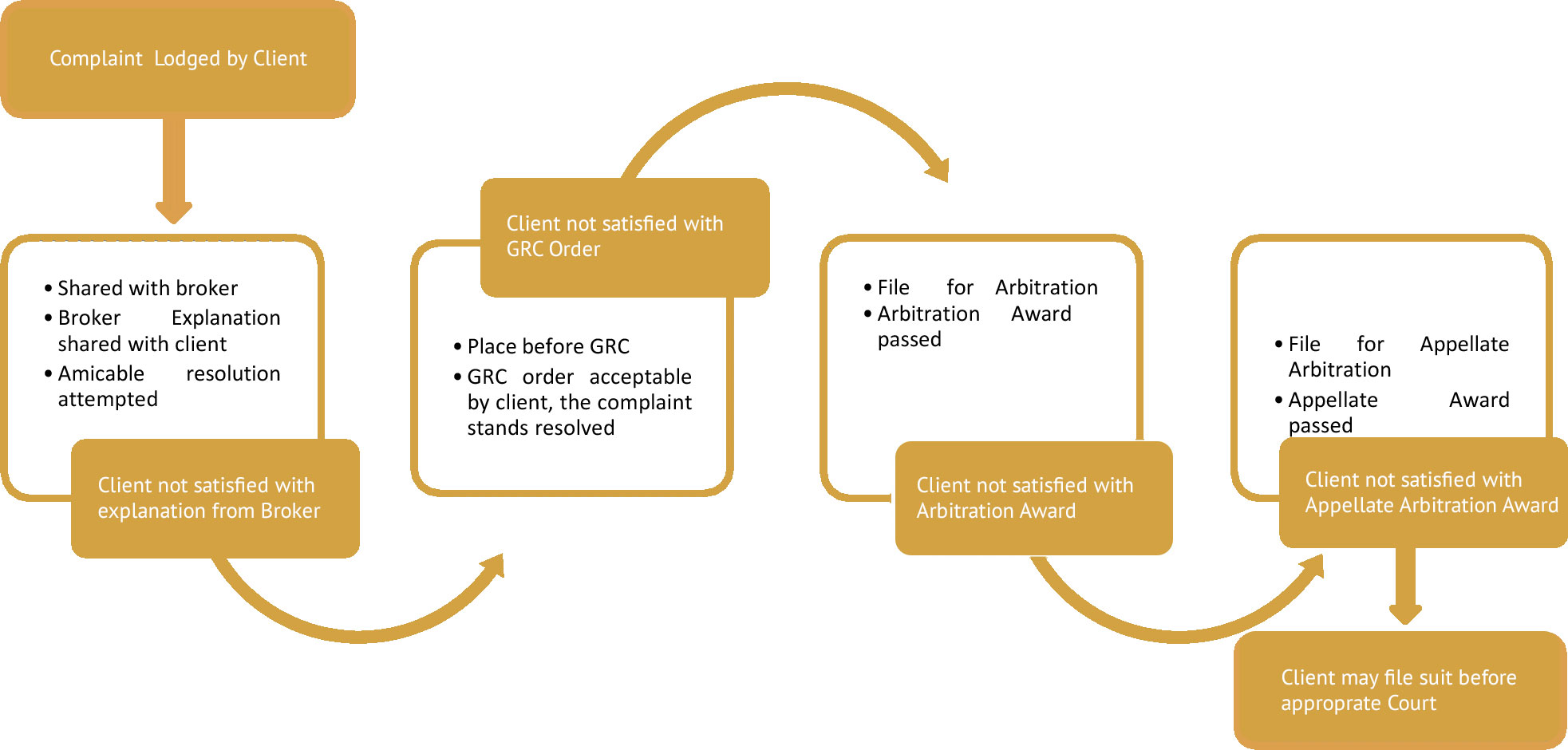Siddharth Shah
Chairman & Managing Director
EPP Securities is a proprietary trading firm with a systematic, quantitative approach to trading capital markets in India.
We initiate a disciplined, scientific approach to trading financial products and constructing one of its kind, sophisticated computing environments with robust risk management to develop trading strategies across asset classes that trade on National Stock Exchange and Bombay Stock Exchange.




| Company Name | : | “EPP SECURITIES PRIVATE LIMITED” |
| CIN | : | U67100GJ2021PTC121647 |
| Trademark | : | 6274055, 6274056, 6274057, 6274058, 6274059 |
| GST | : | 24AAGCE4016K1ZT |
| SEBI | : | INZ000301733 |
| NSE | : | 90240 |
| BSE | : | 6871 |




1. KYC is one time exercise while dealing in securities markets - once KYC is done through a SEBI registered intermediary (Broker, DP, Mutual Fund etc.), you need not undergo the same process again when you approach another intermediary.
2. Prevent unauthorized transactions in your trading / demat account. Update your mobile numbers/email IDs regularly. Quantify information of your transactions directly from exchange / CDSL on your mobile/email at the end of the day / same day.
3. No need to issue cheques by investors while subscribing to IPO. Just write the bank account number and sign in the application form to authorise your bank to make payment in case of allotment. No worries for refund as the money remains in the investor's account.
4. Investors should be cautious on unsolicited emails and SMS advising to buy, sell or hold securities and trade only on the basis of informed decision. Investors are advised to invest after conducting appropriate analysis of respective companies and not to blindly follow unfounded rumours, tips etc. Further, you are also requested to share your knowledge or evidence of systemic wrongdoing, potential frauds or unethical behavior through the anonymous portal facility provided on NSE website.
5. Stock Brokers can accept securities as margin from clients only by way of pledge in the depository system w.e.f. September 1, 2020.
6. Update your mobile number & email Id with your stock broker/depository participant and receive OTP directly from depository on your email id and/or mobile number to create pledge.
7. Pay 20% upfront margin of the transaction value to trade in cash market segment. Investors may please refer to the NSE's Frequently Asked Questions (FAQs) issued vide circular reference NSE/INSP/45191 dated July 31, 2020 and NSE/INSP/45534 dated August 31, 2020 and other guidelines issued from time to time in this regard.
8. Check your Securities /MF/ Bonds in the consolidated account statement issued by NSDL/CDSL every month.
9. Company does not offer any scheme for any assured returns. In case, any such scheme offered by any of employee or other Authorized Person of the company, the same should not be accepted and no investment in such scheme to be made. In case any investment made in such scheme, company will not be responsible for any claims or grievances for any loss on account of relying on the said scheme.
10. Useful Links
NSE | SEBI | NSDL | CDSL | SCORES | ODR
11. Annexure-I: Risk disclosures
RISK DISCLOSURES ON DERIVATIVES
Source: SEBI study dated January 25, 2023 on “Analysis of Profit and Loss of Individual Traders dealing in equity Futures and Options (F&O) Segment”, wherein Aggregate Level findings are based on annual Profit/Loss incurred by individual traders in equity F&O during FY 2021-22.
To follow highest standards of ethics and compliances while facilitating the trading by clients in securities in a fair and transparent manner, so as to contribute in creation of wealth for investors.
i) To provide high quality and dependable service through innovation, capacity enhancement and use of technology.
ii) To establish and maintain a relationship of trust and ethics with the investors.
iii) To observe highest standard of compliances and transparency.
iv) To always keep ‘protection of investors’ interest’ as goal while providing service.
| S.No. | Activities | Expected Timelines |
|---|---|---|
| 1. | KYC entered into KRA System and CKYCR | 10 days of account opening |
| 2. | Client Onboarding | Immediate, but not later than one week |
| 3. | Order execution | Immediate on receipt of order, but not later than the same day |
| 4. | Allocation of Unique Client Code | Before trading |
| 5. | Copy of duly completed Client Registration Documents to clients | 7 days from the date of upload of Unique Client Code to the Exchange by the trading member |
| 6. | Issuance of contract notes | 24 hours of execution of trades |
| 7. | Collection of upfront margin from client | Before initiation of trade |
| 8. | Issuance of intimations regarding other margin due payments | At the end of the T day |
| 9. | Settlement of client funds | 30 days / 90 days for running account settlement (RAS) as per the preference of client. If consent not given for RAS – within 24 hours of pay-out |
| 10. | ‘Statement of Accounts’ for Funds, Securities and Commodities | Weekly basis (Within four trading days of following week) |
| 11. | Issuance of retention statement of funds/commodities | 5 days from the date of settlement |
| 12. | Issuance of Annual Global Statement | 30 days from the end of the financial year |
| 13. | Investor grievances redressal | 30 days from the receipt of the complaint |
| DOs | DON’Ts |
|---|---|
| 1. Read all documents and conditions being agreed before signing the account opening form. | 1. Do not deal with unregistered stock broker. |
| 2. Receive a copy of KYC, copy of account opening documents and Unique Client Code. | 2. Do not forget to strike off blanks in your account opening and KYC. |
| 3. Read the product / operational framework / timelines related to various Trading and Clearing & Settlement processes. | 3. Do not submit an incomplete account opening and KYC form. |
| 4. Receive all information about brokerage, fees and other charges levied. | 4. Do not forget to inform any change in information linked to trading account and obtain confirmation of updation in the system. |
| 5. Register your mobile number and email ID in your trading, demat and bank accounts to get regular alerts on your transactions. | 5. Do not transfer funds, for the purposes of trading to anyone other than a stock broker. No payment should be made in name of employee of stock broker. |
| 6. If executed, receive a copy of Power of Attorney. However, Power of Attorney is not a mandatory requirement as per SEBI / Stock Exchanges. Before granting Power of Attorney, carefully examine the scope and implications of powers being granted. | 6. Do not ignore any emails / SMSs received with regards to trades done, from the Stock Exchange and raise a concern, if discrepancy is observed. |
| 7. Receive contract notes for trades executed, showing transaction price, brokerage, GST and STT etc. as applicable, separately, within 24 hours of execution of trades. | 7. Do not opt for digital contracts, if not familiar with computers. |
| 8. Receive funds and securities / commodities on time within 24 hours from pay-out. | 8. Do not share trading password. |
| 9. Verify details of trades, contract notes and statement of account and approach relevant authority for any discrepancies. Verify trade details on the Exchange websites from the trade verification facility provided by the Exchanges. | 9. Do not fall prey to fixed / guaranteed returns schemes. |
| 10. Receive statement of accounts periodically. If opted for running account settlement, account has to be settled by the stock broker as per the option given by the client (30 or 90 days). | 10. Do not fall prey to fraudsters sending emails and SMSs luring to trade in stocks / securities promising huge profits. |
| 11. In case of any grievances, approach stock broker or Stock Exchange or SEBI for getting the same resolved within prescribed timelines. | 11. Do not follow herd mentality for investments. Seek expert and professional advice for your investments. |
Level 1 – Approach the Stock Broker at the designated Investor Grievance e-mail ID of the stock broker. The Stock Broker will strive to redress the grievance immediately, but not later than 30 days of the receipt of the grievance.
Level 2 – Approach the Stock Exchange using the grievance mechanism mentioned at the website of the respective exchange.
Complaints Resolution Process at Stock Exchange explained graphically:

| S.No. | Type of Activity | Timelines for activity |
|---|---|---|
| 1. | Receipt of Complaint | Day of complaint (C Day). |
| 2. | Additional information sought from the investor, if any, and provisionally forwarded to stock broker. | C + 7 Working days. |
| 3. | Registration of the complaint and forwarding to the stock broker. | C+8 Working Days i.e. T day. |
| 4. | Amicable Resolution. | T+15 Working Days. |
| 5. | Refer to Grievance Redressal Committee (GRC), in case of no amicable resolution. | T+16 Working Days. |
| 6. | Complete resolution process post GRC. | T + 30 Working Days. |
| 7. | In case where the GRC Member requires additional information, GRC order shall be completed within. | T + 45 Working Days. |
| 8. | Implementation of GRC Order. | On receipt of GRC Order, if the order is in favour of the investor, debit the funds of the stock broker. Order for debit is issued immediately or as per the directions given in GRC order. |
| 9. | In case the stock broker is aggrieved by the GRC order, will provide intention to avail arbitration | Within 7 days from receipt of order |
| 10. | If intention from stock broker is received and the GRC order amount is upto Rs.20 lakhs | Investor is eligible for interim relief from Investor Protection Fund (IPF).The interim relief will be 50% of the GRC order amount or Rs.2 lakhs whichever is less. The same shall be provided after obtaining an Undertaking from the investor. |
| 11. | Stock Broker shall file for arbitration | Within 6 months from the date of GRC recommendation |
| 12. | In case the stock broker does not file for arbitration within 6 months | The GRC order amount shall be released to the investor after adjusting the amount released as interim relief, if any. |
Handling of Investor’s claims / complaints in case of default of a Trading Member / Clearing Member (TM/CM)
Following steps are carried out by Stock Exchange for benefit of investor, in case stock broker defaults:
Following information is available on Stock Exchange website for information of investors:
Level 3 – The complaint not redressed at Stock Broker / Stock Exchange level, may be lodged with SEBI on SCORES (a web based centralized grievance redressal system of SEBI) @https://scores.gov.in/scores/Welcome.html
| SN | Received from | Carried forward from previous month | Received during the month | Total Pending | Resolved* | Pending at the end of the month** | Average Resoluti on time^ (in days) | |
|---|---|---|---|---|---|---|---|---|
| Pending for lessthan 3 months | Pending for more than 3 months | |||||||
| 1 | Directly from Investors | 0 | 0 | 0 | 0 | 0 | N.A. | |
| 2 | SEBI (SCORES) | 0 | 0 | 0 | 0 | 0 | N.A. | |
| 3 | Stock Exchanges | 0 | 0 | 0 | 0 | 0 | N.A. | |
| 4 | Other Sources (if any) | 0 | 0 | 0 | 0 | 0 | N.A. | |
| 5 | Grand Total | 0 | 0 | 0 | 0 | 0 | N.A. | |
| SN | Month | Carried forward from previous month | Received | Resolved* | Pending** |
|---|---|---|---|---|---|
| 1 | February-2022 | 0 | 0 | 0 | 0 |
| 2 | March-2022 | 0 | 0 | 0 | 0 |
| 3 | April-2022 | 0 | 0 | 0 | 0 |
| 4 | May-2022 | 0 | 0 | 0 | 0 |
| 5 | June-2022 | 0 | 0 | 0 | 0 |
| 6 | July-2022 | 0 | 0 | 0 | 0 |
| 7 | August-2022 | 0 | 0 | 0 | 0 |
| 8 | September-2022 | 0 | 0 | 0 | 0 |
| 9 | October-2022 | 0 | 0 | 0 | 0 |
| 10 | November-2022 | 0 | 0 | 0 | 0 |
| 11 | December-2022 | 0 | 0 | 0 | 0 |
| 12 | January-2023 | 0 | 0 | 0 | 0 |
| 13 | February-2023 | 0 | 0 | 0 | 0 |
| 14 | March-2023 | 0 | 0 | 0 | 0 |
| 15 | April-2023 | 0 | 0 | 0 | 0 |
| 16 | May-2023 | 0 | 0 | 0 | 0 |
| 17 | June-2023 | 0 | 0 | 0 | 0 |
| 18 | July-2023 | 0 | 0 | 0 | 0 |
| 19 | August-2023 | 0 | 0 | 0 | 0 |
| 20 | September-2023 | 0 | 0 | 0 | 0 |
| 21 | October-2023 | 0 | 0 | 0 | 0 |
| 22 | November-2023 | 0 | 0 | 0 | 0 |
| 23 | December-2023 | 0 | 0 | 0 | 0 |
| 24 | January-2024 | 0 | 0 | 0 | 0 |
| 25 | February-2024 | 0 | 0 | 0 | 0 |
| 26 | March-2024 | 0 | 0 | 0 | 0 |
| 27 | April-2024 | 0 | 0 | 0 | 0 |
| 28 | May-2024 | 0 | 0 | 0 | 0 |
| 29 | June-2024 | 0 | 0 | 0 | 0 |
| 30 | July-2024 | 0 | 0 | 0 | 0 |
| 31 | August-2024 | 0 | 0 | 0 | 0 |
| 32 | September-2024 | 0 | 0 | 0 | 0 |
| Grand Total | 0 | 0 | 0 | 0 |
Note: The data shown here is as per SEBI prescribed format.
*Should include complaints of previous months resolved in the current month, if any.
**Should include total complaints pending as on the last day of the month, if any.
^Average resolution time is the sum total of time taken to resolve each complaint in the current month divided by total number of complaints resolved in the current month.
| SN | Year | Carried forward from previous year | Received during the year | Resolved during the year | Pending at the end of the year |
|---|---|---|---|---|---|
| 1 | 2021-22 | 0 | 0 | 0 | 0 |
| 2 | 2022-23 | 0 | 0 | 0 | 0 |
| 3 | 2023-24 | 0 | 0 | 0 | 0 |
| 4 | 2024-25 | 0 | 0 | 0 | 0 |
| Grand Total | 0 | 0 | 0 | 0 | 0 |
Note: The data shown here is as per SEBI prescribed format.
Disclaimer: Investment in Securities Market is subject to market risk, please read the offer document carefully before investing.